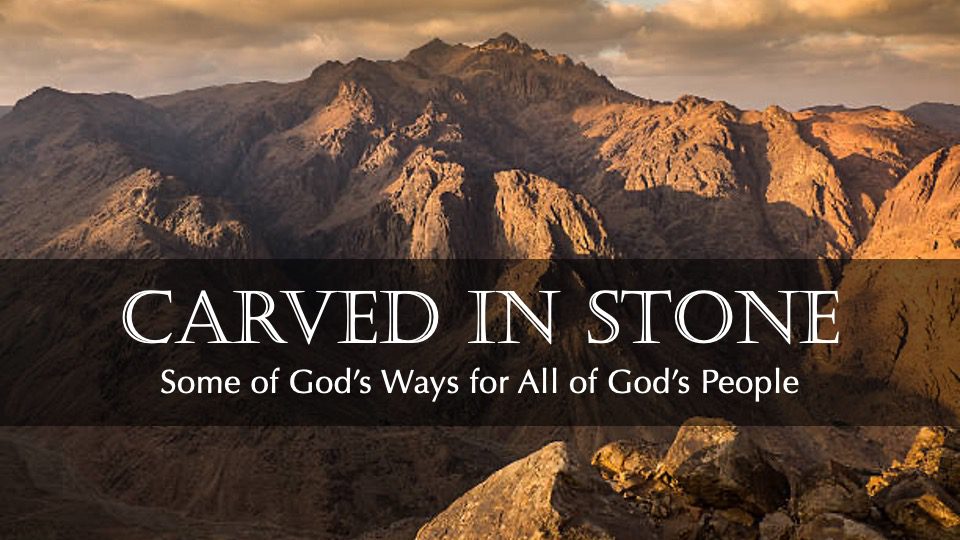
Carved in Stone, Part 1: The God Who Rescues & Realigns (Exodus 20:1-2)
The Ten Commandments do not begin with God saying, “Thou shalt not…” but “I…brought you out.” The preamble of the Decalogue thus indicates that grace was demonstrated before obedience was demanded. Grammatically speaking, the ten great imperatives are preceded by one great indicative: “I am the Lord your God, who brought you out of the land of Egypt, out of the house of slavery” (Exodus 20:2). The giving of the law at Sinai, then, was a climactic moment of divine grace in the history of the world.
Still, God wanted not only to rescue his people from their oppression under Pharaoh, he wanted to realign them to his ways after their captivity in a polytheistic land. Their theology needed to be overhauled. It’s one thing for God to get Israel out of Egypt; it’s another thing for God to get Egypt out of Israel. The Ten Commandments were God’s initial strategy for doing so. But law keeping was never a means of “getting saved,” even in the Old Testament. God did the saving himself by his own power and grace. Indeed, God rescues his people before he regulates them.
The New Testament letters follow a similar pattern. Paul typically starts out by saying, “Here’s what God has freely done for us in Christ; now, here’s what our salvation looks like when we live it out in our daily lives. So, God’s law never presents itself as a means of salvation but a mark of salvation. In Moses’s day, the obedience called for in the Decalogue represents the people’s grateful response of love and loyalty to God for the salvation they had freely received as a gift from him.
This message contains a helpful illustration of how believers can understand the complex relationship between the old and new covenants. The illustration underscores that customs may change, cultures may change, and even covenants may change, but the character of God never changes. He is who he is and always will be. In the end, Moses stood between God and the people as a flawed man—a prophet but not a Savior. Jesus, however, stands between God and the people as a flawless man—a prophet and a Savior. And that’s why lawbreakers today can be saved.
